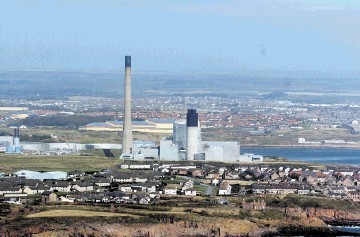
The UK is “exceptionally” well-placed to proceed with carbon capture and storage (CCS), if only the UK Government would support it, experts insist.
Scottish Carbon Capture and Storage (SCCS), a research tie-up between Aberdeen, Edinburgh, Heriot-Watt and Strathclyde universities and the British Geological Survey, said a new report from the Global CCS (GCCS) Institute supported the “widely held” view that a recent UK Government tdecision to put the brakes on CCS projects was a mistake.
GCCS was set up in 2009, with funding from the Australian government, to accelerate the development of CCS globally.
Its diverse international membership consists of governments, global corporations, small companies, research bodies and non-government organisations committed to CCS as an integral part of a low-carbon future.
SCCS said the group’s latest report – Global Storage Portfolio: A Global Assessment of the Geological CO2 Storage Resource Potential – confirmed the North Sea as an ideal site for greenhouse gas storage.
It added: “The report shows that the UK is exceptionally well-positioned to enact CO2 storage, with technical assessment well advanced and regulation and policy indicators near to full-marks.
“This is no surprise to companies and researchers interested in CCS in the UK.”
In November, plans to build a groundbreaking CCS plant in the north-east collapsed after the government pulled the plug on £1billion of funding.
Energy giants Shell and SSE had earmarked Peterhead Power Station as a world-first demonstration project which could have brought hundreds of jobs to the area.
According to SCCS, North Sea CO2 storage could be established at “relatively low cost and financial risk” by using existing infrastructure from the declining oil and gas industry.
And it last night highlighted previous studies showing “capacity in the North Sea is sufficient for several decades worth of CO2 storage requirement for the whole of the European Union”.
SCCS director Professor Stuart Haszeldine added: “From the global compilation of data by the Global CCS Institute it is clear that worldwide, there is plenty of CO2 storage capacity that can be developed.
“The storage potential beneath the seas around the UK is highlighted as exceptionally well-known, understood and accessible, and this presents a real opportunity for Scotland and the UK which the government should grasp.”
A UK Government spokesman said: “We haven’t closed the door to CCS technology in the UK, but as part of our ongoing work to get Britain’s finances back on track we have had to take difficult decisions.
“CCS should come down in cost and we are considering the role that it could play in the long-term decarbonisation of the UK.”
Recommended for you
